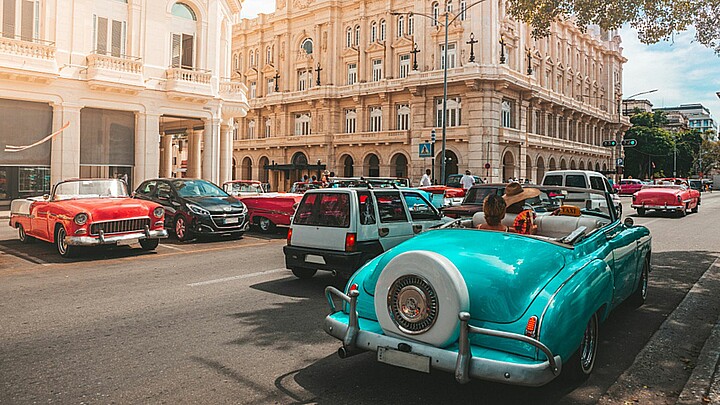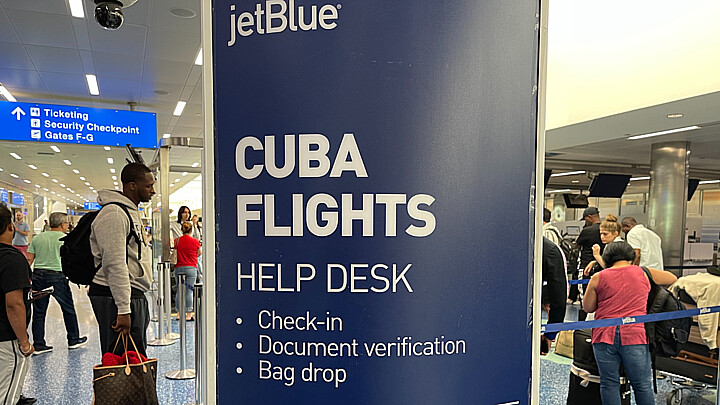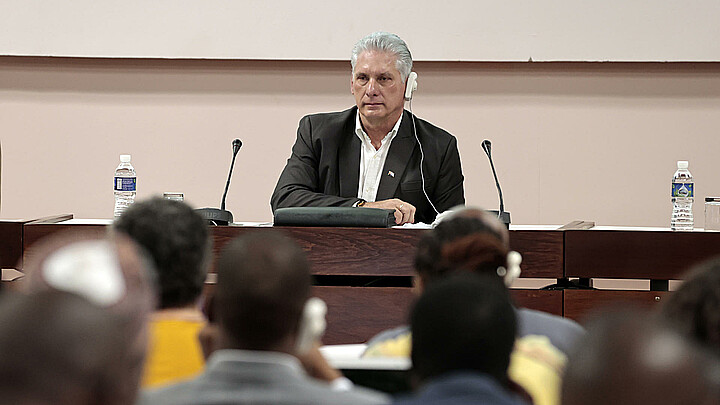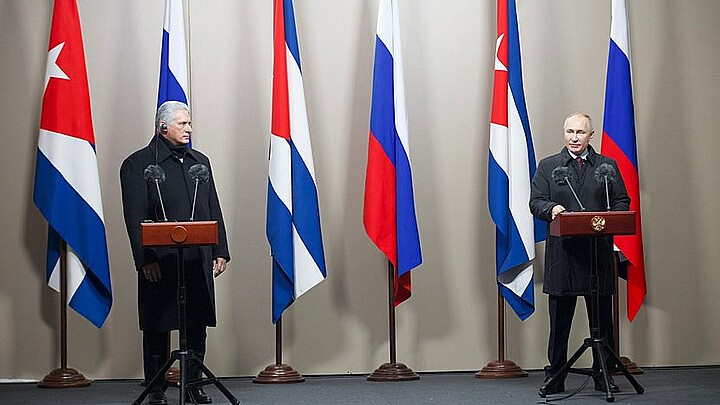Business
Paris Club democracies meet Cuban regime in Havana raising criticism of 'special treatment'
The Paris Club is a group of 14 democracies that manage the debt of the Cuban dictatorship. It has renegotiated and refinanced its debt multiple times.

September 2, 2023 9:34am
Updated: September 2, 2023 9:34am
The Paris Club, an informal group of creditor countries that work together to address issues related to sovereign debt and financial stability, met with Cuban regime representatives in Havana on Wednesday, sparking criticism among activists and analysts for what they say is special treatment towards the communist country.
The Paris Club is a group of 14 democracies that manage the debt of the Cuban dictatorship. It has renegotiated and refinanced its debt multiple times.
In 2015, a landmark accord between the Paris Club and Havana resulted in an arrangement to forgive $8.5 billion of $11.1 billion in sovereign debt the regime defaulted over during an 18-year period.
Under the terms of the agreement, Cuba committed to making repayments for the remaining amount in yearly installments until 2033. However, the country only managed to fulfill its obligations partially in 2019 and eventually defaulted on its payments the following year.
Economist Elías Amor told ADN Cuba that what drew attention to this “working session” – as the regime referred to it – is that it was made public while already underway, without prior notice.
Creditor nations of the Paris Club typically convene on a monthly basis (excluding February and August) in Paris. These monthly gatherings feature a "Tour d'Horizon" meeting lasting a day, during which Paris Club creditors engage in discussions about the external debt status of borrowing nations or delve into methodological concerns related to the debt of developing countries.
ADN's attempts to reach out to the Paris Club regarding the purpose of the meeting have gone unanswered.
“It's possible that [the meeting] was on the agenda, but the proximity of this meeting to that of the Group of 77 plus China raises some questions about what capabilities Cuba has to convey certain signals to that group of countries, which includes the world's most indebted nations,” Amor said.
Cuba, as the current chair of the G-77 plus China, a coalition of 123 developing nations within the U.N. non-alignment movement, will offer Miguel Díaz-Canel a platform at the United Nations General Assembly's high-level week in September.
Cuba's "handpicked president" intends to visit New York next month for this event, according to a report published by the Miami Herald.
Havana “once again extends the debt payment deadlines, [and] can’t be current on its debt, so it tries to get a free pass like it already did in 2015, and all of this is granted by this group of creditors who, in principle, seem uninterested in adopting restrictive measures like those taken with other countries,” the economist explained.
“Cuba is given treatment that is not afforded to other countries and the reasons, we don't know them, but it's clear that international money lenders have a certain respect and consideration for Cuba that they don't have for other countries.”
For Orlando Gutiérrez Boronat, coordinator of the Assembly of Cuban Resistance (ARC), Europe once againg “continues to finance the Castro dictatorship, that not only represses its own people but also sends troops to attack the people of Ukraine.”
The regime pledged to “honor the commitments made with creditor countries of the Paris Club,” according to reports from Cuba’s state press.
The Group of Creditors of Cuba includes Australia, Austria, Belgium, Canada, Denmark, Finland, France, Italy, Japan, the Netherlands, Spain, Sweden, Switzerland and the United Kingdom.
Participants in the meeting included William Roos and Fabien Bertho, co-chair and secretary of the institution along with Ricardo Cabrisas Ruiz, Minister of Foreign Trade and Foreign Investment; and Joaquín Alonso, Minister-President of the Central Bank of Cuba, according to reports from Cuba's state press.










